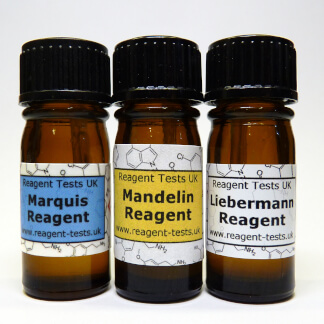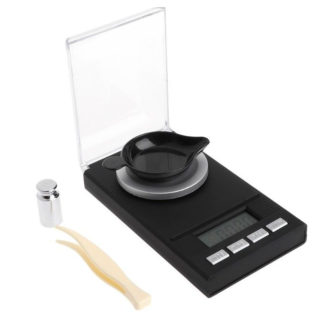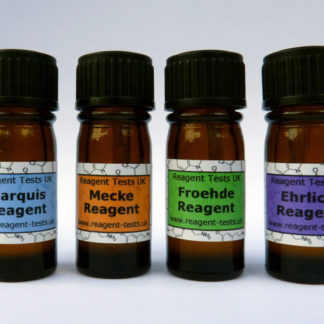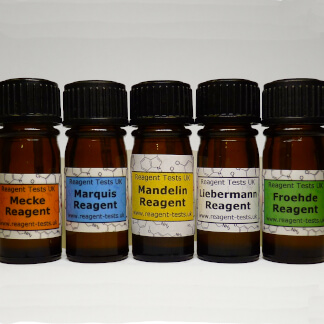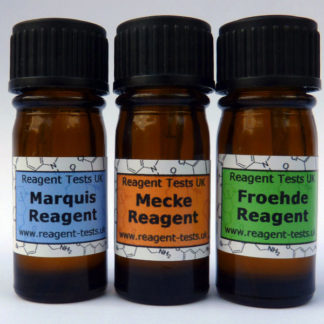Watch our instruction video on youtube.
The video contains some great tips for beginners and experts alike.
We provide detailed instructions with every order. Following them closely will give you the best results. A summary is displayed on this page.
Reagent tests are very simple to use. You need a glazed ceramic surface (the bottom of a plate or mug is good) and some water. You should always wear safety specs and gloves as the reagents will damage skin & eyes.
- Make sure the area is clean and well lit and you have a white, chemical resistant surface.
- Gather a few tiny shavings (~3mg) of the substance to be tested and crush well.
- Take out some of the test granules and place on the powder.
- Observe the colour change for 60-120 seconds.
- Rinse with water. Ignore results after the first colour change.
The image below shows the expected colours from our reagents with a number of drugs. Positive reactions with the ehrlich reagent are all shades of purple and can take five minutes to develop.
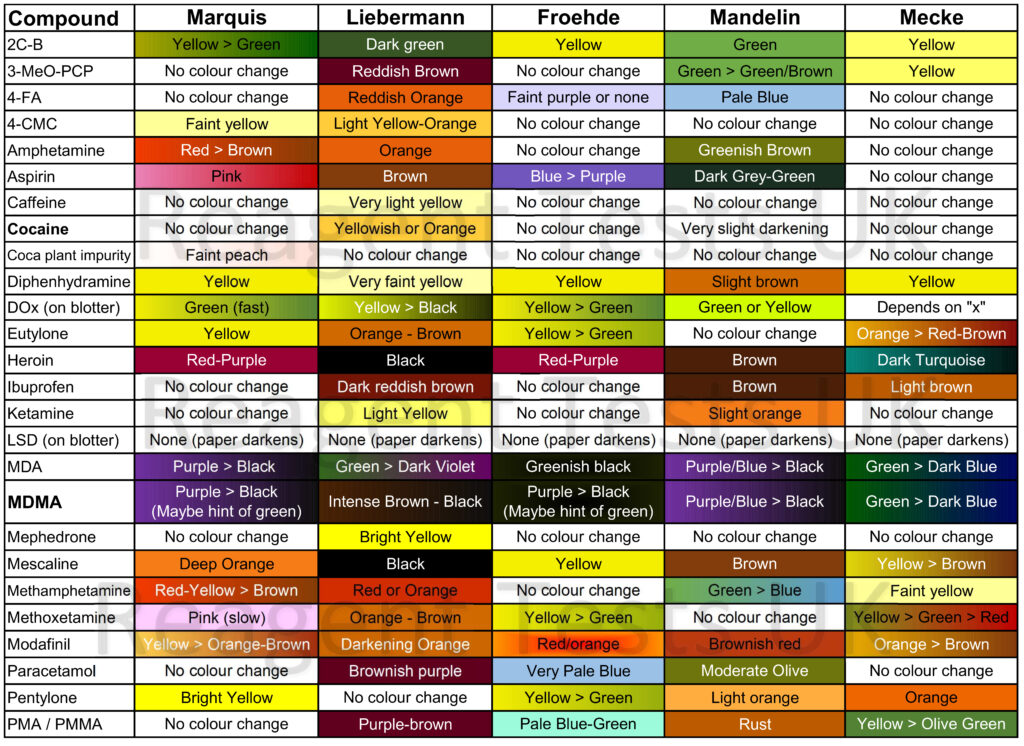
The ehrlich reagent will go purple or pink if it is exposed to an indole compound like LSD, an analogue of LSD or a tryptamine. No 0.5cm² blotter can fit an active dose of tryptamine onto it. Phenethylamines (like 2C-B and NBOMe) will not give a colour change with the ehrlich reagent.
Phenethylamines can be detected with the other reagents, such as marquis. Other reagents make paper go brown and show the substance colour change in the liquid. If a blotter is sold as LSD but the marquis liquid changes colour after a test then it contains another substance (this is bad).
You can check our blog for more obscure compounds. There are a vast number of resources online so do search online or email us to see if we have results for your compound.
Reagents have a shelf life of around 12 months when stored upright in a fridge. Allow to warm before opening to avoid condensation getting in. To dispose of reagents, wash the liquid down the sink with gently running water.
If reagents contact the skin or eyes then rinse immediately with cold water. Reagents do not pose a long term toxicity risk from brief skin contact. Seek medical attention if ingested as reagents are highly acidic.

